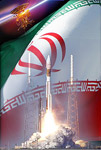 Washington Post: Using the territory of countries across the world, working sometimes through proxies like Lebanon’s Hezbollah and sometimes with its own forces, Tehran has been intentionally targeting not just diplomats of enemies such as Israel and Saudi Arabia but also civilians. The Washington Post
Washington Post: Using the territory of countries across the world, working sometimes through proxies like Lebanon’s Hezbollah and sometimes with its own forces, Tehran has been intentionally targeting not just diplomats of enemies such as Israel and Saudi Arabia but also civilians. The Washington Post
By Editorial Board
 THE BOMBING of a bus in Bulgaria filled with Israeli tourists on Wednesday underlines the grim fact that Iran is waging a war of terrorism. Using the territory of countries across the world, working sometimes through proxies like Lebanon’s Hezbollah and sometimes with its own forces, Tehran has been intentionally targeting not just diplomats of enemies such as Israel and Saudi Arabia but also civilians.
THE BOMBING of a bus in Bulgaria filled with Israeli tourists on Wednesday underlines the grim fact that Iran is waging a war of terrorism. Using the territory of countries across the world, working sometimes through proxies like Lebanon’s Hezbollah and sometimes with its own forces, Tehran has been intentionally targeting not just diplomats of enemies such as Israel and Saudi Arabia but also civilians.
The Bulgaria bombing, in which five Israelis were killed, was the ninth plot pinned on Iran this year and the third this month: Similar attacks in Kenya and Cyprus were foiled. In February, an Israeli diplomat’s wife was injured in a car bombing in New Delhi, and other attacks failed in Georgia and Thailand. Last October, the Justice Department charged two Iranians in a plot to kill the Saudi ambassador in Washington by bombing a Georgetown restaurant.
Iranian officials have hinted that they are seeking revenge for the assassinations of scientists working on the country’s nuclear program and for cyberattacks by Israel and the United States. But as a statement by the U.N. Security Council on Thursday said, “any acts of terrorism are criminal and unjustifiable, regardless of their motivation.” The victims of the Bulgarian bombing were not warriors or scientists building illicit weapons of mass destruction but innocent civilians, including a pregnant woman.
The string of attacks offers a stark answer to the question of whether the regime of Ayatollah Khamenei is prepared to compromise with the West. Three rounds of negotiations this year between Tehran and a six-nation coalition have been “nonstarters,” as Secretary of State Hillary Rodham Clinton acknowledged this week. The Obama administration nevertheless appears interested in keeping diplomacy going, if only to deter or delay Israel from launching an attack on the Iranian nuclear facilities.
Military action should remain on hold while recently applied sanctions, which should curtail Iran’s ability to market its oil, sink in. But the international response to Iran’s terrorism should be far more vigorous than it has been so far. Despite strong evidence linking Hezbollah and the Iranian Revolutionary Guard to the attacks, even some countries whose territories were invaded by the terrorists have hung back. India’s ambassador to the United Nations condemned the assassinations of senior Syrian officials in Damascus this week, but New Delhi has yet to hold Iran accountable for the February bombing, which took place blocks from the prime minister’s residence.
If Iran suffers no consequences from its acts of terrorism, they will continue. Israel has said that it will retaliate in a manner of its choosing. But more “shadow war” should not be the only response. The Security Council should review the abundant evidence of involvement by the Revolutionary Guard and Hezbollah in this year’s attacks and punish both those groups as well as the Iranian government with sanctions.


